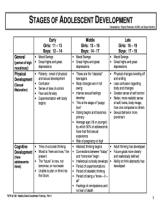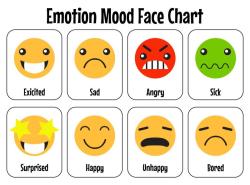What are ethical implications associated with psychological research?
Psychological research, at its core, seeks to understand the complexities of the human mind and behavior. This pursuit of knowledge is invaluable for advancing our understanding of ourselves and improving well-being. However, the very nature of studying human beings means that scientific progress must always be carefully balanced with an unwavering respect for human rights, dignity, and welfare. The ethical implications in psychological research are profound, serving as the bedrock upon which all credible studies are built.
Throughout history, there have been pivotal—and sometimes controversial—studies that starkly highlighted the need for stringent ethical guidelines. Experiments like Milgram's obedience study, which explored willingness to obey authority even when it caused harm, or the Stanford prison experiment, which examined the psychological effects of perceived power, raised critical questions about participant well-being and researcher responsibility. These historical precedents, among others, profoundly shaped the rigorous ethical standards that govern psychological science today.
This article will provide a clear and comprehensive explanation of the core psychology research ethics, detailing the fundamental principles that guide studies, the robust protections in place for participants, and the mechanisms by which researchers maintain integrity and accountability in modern psychology. Understanding these ethical frameworks is crucial for anyone engaging with or learning about psychological discovery.
What Are the Ethical Considerations in Psychological Research?
The foundation of sound psychological research rests on a set of core ethical principles designed to protect participants and ensure the integrity of the scientific process. Organizations like the American Psychological Association (APA) have established comprehensive guidelines that researchers must adhere to.
Here are the key ethical principles:
Informed Consent: This is arguably the most fundamental principle. Participants must be fully informed about the nature of the study, its purpose, duration, procedures, potential risks, and benefits before they agree to participate. They must understand that their participation is voluntary.
Example: A researcher conducting a study on memory would provide participants with a detailed consent form explaining how their memory will be tested, what kind of information will be collected, and how long the session will last.
Confidentiality and Anonymity: Participants have the right to have their personal information and responses kept private.
Confidentiality: Researchers will not share identifiable information about individual participants.
Anonymity: In some cases, researchers collect data without any identifiable information, meaning even the researchers don't know who provided which data.
Example: In a survey about mental health, participants' names would not be linked to their responses, or their responses would be aggregated and reported only in statistical summaries.
Voluntary Participation and Right to Withdraw: Participation in any study must be voluntary. Participants should never feel coerced or pressured. Crucially, they must be informed that they have the right to withdraw from the study at any point, without penalty, even if they have already begun.
Example: If a participant in a stress study becomes uncomfortable, they can stop at any time and still receive any promised compensation or course credit.
Avoidance of Harm (Non-Maleficence): Researchers have a primary responsibility to protect participants from physical or psychological harm. This includes minimizing discomfort, stress, or any negative impact. The potential benefits of the research must outweigh any foreseeable risks.
Example: A study on the effects of sleep deprivation would carefully monitor participants' well-being and have a plan to intervene if adverse effects become too severe.
Debriefing: After a study concludes, especially if any deception was used (which must be justified and minimal), participants must be fully informed about the true purpose of the research, any deception used, and why it was necessary. Researchers also provide resources if participants experienced any distress.
Example: After a study that used a mild deception about the true task, the researcher would explain the actual hypothesis and why the deception was necessary to avoid demand characteristics.
These principles don't just guide specific experiments; they inform the entire research lifecycle, from initial concept development to data analysis and publication. Modern research ethics emphasize transparency, respect, and responsibility in every interaction with human participants.
How Do Psychologists Protect Research Participants?
Protecting research participants is a multi-layered process involving specific procedures and a commitment to their well-being. Psychologists employ several strategies to safeguard individuals' physical and emotional health throughout a study.
Rigorous Risk-Benefit Analysis: Before any study begins, researchers must carefully assess the potential risks to participants against the potential benefits of the research. Risks could include physical discomfort, psychological stress, or breaches of privacy. Benefits typically involve advancements in knowledge, direct therapeutic effects, or compensation for participation. The ethical standard dictates that risks must be minimized and outweighed by the potential benefits.
Informed Consent Forms: These are critical documents that serve as a transparent contract between the researcher and the participant. A robust informed consent form clearly explains:
The purpose of the research.
The procedures participants will undergo.
Any foreseeable risks or discomforts.
Any potential benefits (to the participant or society).
The participant's right to withdraw at any time without penalty.
Details about confidentiality or anonymity.
Contact information for the researcher and for an independent ethical review board.Participants must read, understand, and voluntarily sign this form before participating. For children, parental/guardian consent is required, along with the child's assent (agreement) if they are old enough to understand.
Confidentiality Measures and Data Protection: Researchers implement stringent protocols to ensure data privacy.
Anonymization: Removing all identifying information from data, so responses cannot be linked back to individual participants.
Confidentiality: Keeping participants' identities private, even if researchers know them. This involves storing data securely (password-protected files, locked cabinets) and using codes or pseudonyms instead of names.
Secure Data Storage: Implementing robust cybersecurity measures for electronic data and physical security for paper records.
Limited Access: Only authorized research personnel have access to identifiable data.
Special Protections for Vulnerable Populations: Certain groups require additional safeguards due to their diminished autonomy or increased susceptibility to coercion or harm. These include:
Minors: Requiring parental consent in addition to the child's assent.
Individuals with Cognitive Impairments: Requiring consent from a legal guardian and assessing the individual's capacity to assent.
Prisoners: Due to the potential for coercion, special ethical considerations apply, often requiring independent advocate oversight.
Pregnant Women: Requiring extra care to ensure the safety of both the mother and the fetus.
Students/Employees: Researchers must ensure that participation does not influence grades or employment status and that alternatives to participation are available without penalty.
By meticulously following these procedures, psychologists aim to create a research environment where participants feel respected, safe, and empowered, ensuring that the pursuit of knowledge never comes at the cost of human dignity.
What Are Common Ethical Violations in Psychology Studies?
Despite strict guidelines, the history of psychological research includes instances where ethical boundaries were crossed, leading to significant lessons and the development of modern safeguards. Identifying these past transgressions helps us understand the importance of current ethical frameworks.
Common types of ethical violations in psychology studies include:
Deception Without Proper Debriefing: While minor deception can sometimes be justified in psychological research (to prevent participants from altering their behavior if they know the true hypothesis), it becomes unethical if participants are not thoroughly debriefed afterward. Without debriefing, participants might leave the study feeling confused, used, or even distressed, with no opportunity for clarification or emotional support.
Historical Example: Stanley Milgram's obedience experiments (1961-1963) involved significant deception, as participants believed they were administering painful electric shocks to another person. While Milgram debriefed his participants, the extent of the stress and deception raised serious ethical concerns about potential psychological harm.
Coercion or Lack of Voluntary Participation: Participants must freely choose to be part of a study. Coercion occurs when individuals feel pressured or compelled to participate due to undue influence or fear of negative consequences. This is a particular concern in studies involving power imbalances (e.g., between a professor and students, or employer and employees).
Historical Example: The Stanford Prison Experiment (1971) saw participants assigned roles as prisoners or guards. While participants initially consented, the extreme psychological pressure and the immersive nature of the experiment made it difficult for 'prisoners' to genuinely withdraw, raising questions about voluntary participation and the power dynamics at play.
Breach of Confidentiality or Anonymity: Failing to protect participants' personal information or linking identifiable data to their responses is a serious ethical violation that can have real-world consequences, such as damage to reputation, legal issues, or emotional distress.
Historical Example: While not a single study, historical cases of patient records being inadequately protected, or research data being used in ways that identified individuals, underscore the importance of robust data security and anonymity protocols.
Emotional or Physical Harm Without Justification/Mitigation: Causing undue physical pain or severe psychological distress without sufficient justification, or failing to adequately mitigate these harms, is a clear ethical violation. The potential for harm must always be minimized, and researchers must have a plan to address any negative impact.
Historical Example: The "Monster Study" (1939) at the University of Iowa involved orphans who were subjected to positive or negative speech therapy, with some children who did not stutter being told they had a stutter. This experiment caused significant psychological distress and emotional harm to the children, demonstrating a severe disregard for their well-being.
These historical examples served as stark warnings, prompting the psychology community to develop more rigorous ethical standards and oversight mechanisms. Modern safeguards, such as Institutional Review Boards (IRBs), comprehensive informed consent, and mandatory debriefing, are now in place precisely to prevent such egregious ethical issues in psychology from recurring. The lessons learned from these past mistakes continue to shape responsible research practices today.
How Do Institutional Review Boards Ensure Ethical Compliance?
The cornerstone of modern ethical oversight in psychological research, particularly in academic and clinical settings, is the Institutional Review Board (IRB). An IRB is an administrative body established to protect the rights and welfare of human research subjects recruited to participate in research activities conducted under the auspices of the institution with which it is affiliated.
The Role of an IRB:
Review and Approval of Research Proposals: Before any research involving human participants can begin, researchers must submit a detailed proposal to the IRB. This proposal outlines every aspect of the study, including:
The research question and methodology.
Participant recruitment methods.
The specific procedures participants will undergo.
A thorough assessment of potential risks and benefits.
Copies of all informed consent forms, debriefing scripts, and data collection instruments.
Measures for ensuring confidentiality and data security.
Assessment of Risk-Benefit Ratio: A primary function of the IRB is to critically evaluate whether the potential benefits of the research (to science or society) justify any potential risks to participants. The IRB ensures that risks are minimized to the greatest extent possible.
Scrutiny of Participant Consent Processes: The IRB meticulously examines the informed consent document and process. They ensure that the language is clear, understandable, and that participants will be given ample time and opportunity to ask questions before consenting. They also pay special attention to ensuring adequate protections for vulnerable populations.
Ongoing Oversight and Reporting: IRB approval is not a one-time event. Researchers must:
Report Progress: Submit regular reports to the IRB on the status of their research.
Report Adverse Events: Immediately inform the IRB of any unexpected or serious adverse events that occur during the study.
Seek Amendments: Obtain IRB approval for any significant changes to the research protocol.
Annual Review: Research protocols typically undergo an annual review to ensure continued ethical compliance.
Global Equivalents:
While IRBs are standard in the United States, similar bodies exist globally under different names, such as Research Ethics Committees (RECs) in the United Kingdom, Canada, Australia, and many European countries. Their fundamental purpose, however, remains consistent: to ensure that all research involving human beings is conducted ethically and responsibly. The rigorous review process by these independent bodies is crucial for maintaining public trust and safeguarding participant welfare.
Why Is Ethics Important in Psychological Experiments?
The commitment to ethics in psychological experiments is not merely a bureaucratic hurdle; it is fundamental to the very existence and credibility of the discipline. The importance of ethical conduct in this field cannot be overstated, as it touches upon scientific integrity, public trust, and moral responsibility.
Builds Trust: Ethical practices foster trust between researchers, participants, and the broader public. When participants feel assured that their rights and well-being are protected, they are more likely to volunteer for studies, providing the diverse data necessary for meaningful psychological insights. Public trust, in turn, allows psychology to gain societal acceptance and funding.
Maintains Scientific Credibility and Integrity: Science relies on rigorous methodology and verifiable results. Unethical research, such as studies involving coercion or undisclosed deception that impacts behavior, compromises the validity of findings. If participants are not truly voluntary or if their experience is unduly manipulated, the research outcomes become questionable. Ethical conduct ensures that findings are robust and genuinely reflect human behavior or cognition, not simply a reaction to an unethical experimental setup.
Upholds Moral and Social Responsibility: Psychologists have a moral obligation to treat all individuals with respect and to avoid causing harm. This responsibility extends beyond the laboratory, influencing how psychological knowledge is applied in clinical settings, education, and public policy. Ethical research contributes positively to society by generating knowledge that improves lives without exploiting individuals.
Improves Research Quality and Validity: Surprisingly, ethical considerations often lead to better science. By requiring clear procedures, detailed planning, and careful consideration of participant experiences, ethical review processes push researchers to design studies that are not only humane but also methodologically sound and more likely to yield valid, generalizable results.
Advances Both Science and Humanity: Ultimately,ethics in psychology ensures that the pursuit of scientific understanding is intertwined with humanistic values. It guarantees that our quest to unravel the mysteries of the mind is conducted in a way that respects the dignity of every individual, contributing to knowledge that genuinely benefits humanity without sacrificing its foundational principles.
FAQ Section:
What happens if a psychologist violates ethical rules?
If a psychologist violates ethical rules, they can face severe consequences. This might include:
Institutional Sanctions: Loss of research funding, suspension from the institution, or termination of employment.
Professional Penalties: Loss of license to practice (if applicable), censure, or other disciplinary actions from professional organizations like the APA.
Legal Consequences: In some egregious cases (e.g., severe harm, gross negligence), legal charges or civil lawsuits could follow.
Reputational Damage: Significant harm to their professional reputation and credibility, potentially ending their career.
How do ethics differ between human and animal research?
While both human and animal research are governed by ethical guidelines aimed at minimizing harm, the specific principles differ due to the differing capacities and rights of the subjects.
Human Research: Emphasizes informed consent, voluntary participation, and the right to withdraw due to cognitive and communicative abilities. Oversight by IRBs.
Animal Research: Focuses on minimizing pain and suffering, providing appropriate housing and care, and justifying the use of animals (the "3 Rs": Replacement, Reduction, Refinement). Oversight by Institutional Animal Care and Use Committees (IACUCs). Deception is not a concern for animals.
Are deception and stress ever allowed in psychological studies?
Yes, deception and stress (or discomfort) are sometimes allowed, but only under very strict conditions and with rigorous ethical justification:
Deception: Must be minimal, justified by the study's scientific value (no other way to test the hypothesis), not cause undue harm, and always followed by a thorough debriefing. Participants must also be given the option to withdraw their data after debriefing.
Stress/Discomfort: Must be minimal, temporary, and justified by the importance of the research question. The potential benefits must clearly outweigh the risks, and researchers must have a plan for monitoring participants and providing support or resources if distress occurs. The right to withdraw is paramount.
Conclusion
The pursuit of knowledge in psychology is a powerful endeavor, but it is one that must always be guided by a steadfast commitment to ethical principles. From the foundational concept of informed consent to the vigilant oversight of Institutional Review Boards in psychology, ethics are not merely a set of rules; they are the very essence of credible, humane science.
The historical lessons of past ethical missteps serve as constant reminders of the profound responsibility researchers bear when studying human behavior. By rigorously adhering to participant protection in research, maintaining strict confidentiality, and prioritizing the well-being of every individual, psychologists ensure that their discoveries not only advance our understanding of the mind but also uphold the fundamental dignity and rights of humanity. Ethics are not limitations; they are the bedrock that allows psychological science to truly benefit both individuals and society as a whole.














WellnessAdvocate
on October 09, 2025I appreciated the section on **Confidentiality and Data Protection**. It's vital that participants understand how their sensitive information is safeguarded during **psychology research ethics**.
ScienceReaderM
on October 09, 2025Very balanced and informative. The FAQ addressing when deception or stress is *allowed* with strict justification provides necessary nuance to the discussion of **ethical issues in psychology**.